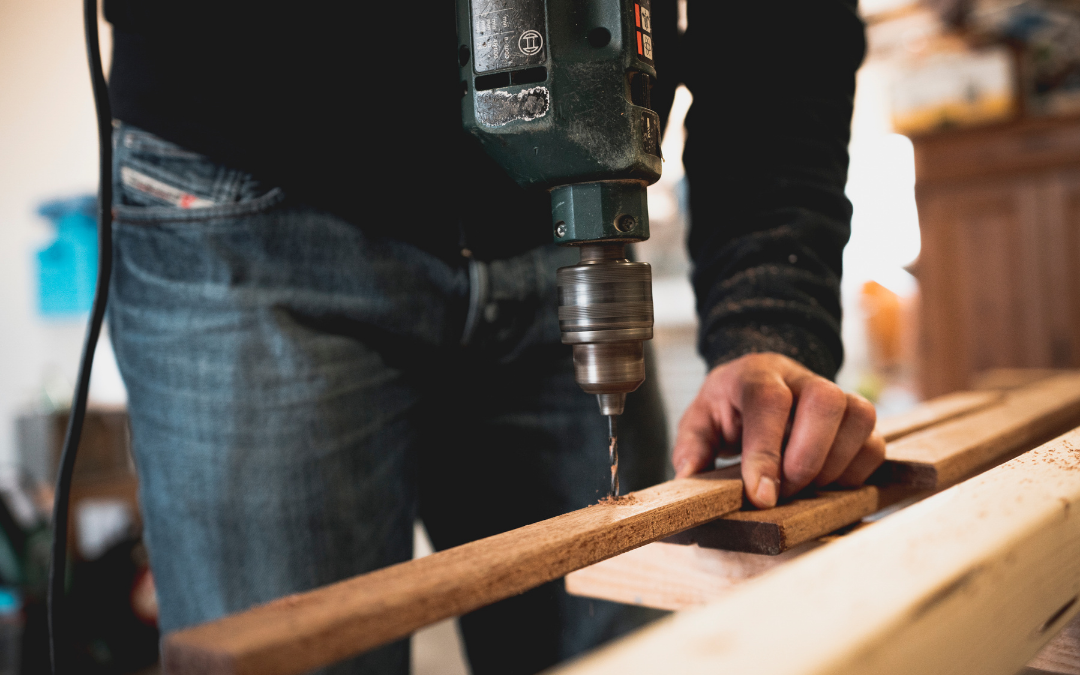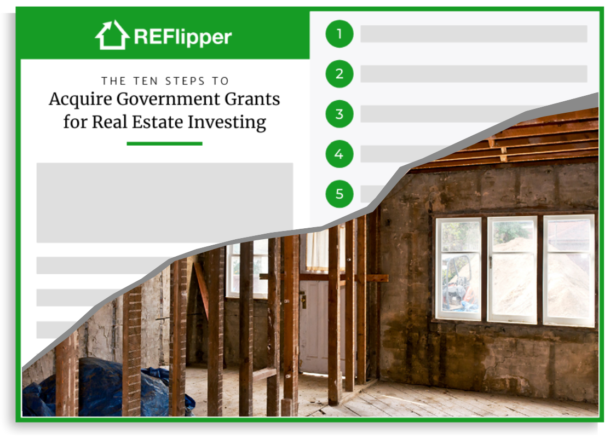If you are investing in damaged property or trying to repair the property that you already own, you can use these grants to pay for the repairs. Many U.S. Department of Housing and Urban Development (HUD) programs provide grants and loans to real estate developers and investors who look to create more affordable housing for the elderly, disabled, and low-income.
The 9 grants listed here are for people who are elderly, live in their homes, or are real estate investors. There are income requirements or restrictions for these grants if you own the property and reside in it. However, if you are an investor, the income restrictions apply to the rental units’ occupants and not the property owner. Lastly, as a real estate investor who receives federal grants to provide affordable housing to low-income and very low-income households, you will be required to repay the grants if you do not maintain the minimal percentage of low-income occupants in your property’s rental units.
Government Grants for House Repairs
#1 Emergency Capital Repair Grant
Emergency Capital Repair grants can be used for one-time capital repairs of property rented out to elderly tenants. The repairs must be necessary, and a failure to make the repairs must threaten, now or in the near future, the elderly tenants’ safety, security, and quality of life.
The grants can only be used on properties that have received funding from other select federal programs. Also, the grants can only be used for certain kinds of repairs—the program’s terms outline which repairs are eligible for the one-time grant. The grants can be used to repair any existing major building and structural components in critical condition, repair or replace existing mechanical equipment needed for health and safety, and purchase high-efficiency heating and cooling systems (Energy Star).
#2 Single Family Housing Repair Loans and Grants / Section 504 Home Repair Program
The Single Family Housing Repair Loans and Grants are also known as the Section 504 Home Repair Program. The program gives grants to low-income elderly people to remove health and safety hazards from their homes.
Eligible program participants must be U.S. citizens or permanent resident homeowners who are 62 years old or older, low-income or very low-income homeowners, live in a rural area, and unable to repay the repair grant.
#3 Home Improvement Grant
This grant is for low-income elderly homeowners who can’t personally finance home improvement projects and can’t access a line of credit to pay for home repairs. Homeowners can receive a lifetime maximum of $7,500 for home improvements.
The program-approved improvements include the repairing of health and safety hazards and things that make homes more handicap-accessible. Grants will not be awarded to eligible homeowners for cosmetic home improvements.
#4 HOME Investment Partnerships Program
Developers and low-income homeowners use HOME grants to rehabilitate a property. The program’s goal is to increase the amount of affordable housing for low-income and very low-income households.
HOME grants are approved for the activities in the following five categories: rehabilitation of owner-occupied housing, assistance to homebuyers, purchasing property, rehabilitation and construction of rental housing, and tenant-based rental assistance.
These grants can be used for creating a handicap-accessible property, home weatherization, emergency repairs, hard costs (e.g., construction, repairs, materials), and soft costs (e.g., interest payments on a home repair loan).
Investors and homeowners who receive a HOME grant must maintain their property, keep their rents affordable, and hold onto the property for a specified number of years (determined by HOME funds received and how they were spent), as outlined in the HOME guidelines.
#5 Housing Preservation Grants
Investors buying or rehabilitating property for occupancy by low-income and very low-income families in rural areas can receive these grants. Housing preservation grants are limited to property in rural areas with 20,000 or fewer people and federally recognized tribal lands. The grants can be used for painting, paneling, floor covering (incl. carpeting), improving clothes closets or shelving, improving kitchen cabinets, air conditioning, and landscape paintings.
#6 Homeowner Rehabilitation Assistance Programs
This program was designed to help low-income and very low-income homeowners to rehabilitate, repair, and reconstruct their homes. The homeowners who use this program can make needed repairs and modernize their homes despite their lack of funds, inability to obtain a loan, and inability to repay loans.
To qualify for these grants homeowners must live in the home, have homeowner’s insurance, be current on their mortgage, have a clear property title, and be low income. Local jurisdictions are permitted to add additional eligibility requirements, which may include capping the value of the homes eligible for the grants, restricting the types of home that qualify for the grants (e.g., single-family, duplexes, multi-family), and targeting specific groups (e.g., elderly, disabled).
The grants may be used to fund activities approved by the local jurisdiction, such as:
- Repairs or improvements to plumbing
- Electrical or septic systems
- Replacement of roofing, floors, or windows
- Emergency repairs
- Improving energy efficiency
- Making accessibility improvements for seniors
- Lead paint removal
- Consumer durables (e.g., built-in dishwashers and ovens)
#7 Specially Adapted Housing Grant Program
If you are a disabled veteran homeowner who wants to renovate and/or repair your home, you can do it with the federal grants offered through the Specially Adapted Housing Grant program. There are three types of grants available: Specially Adapted Housing (SAH), Special Home Adaptation (SHA), and Home Improvements and Special Alterations (HISA).
The grants are restricted to different types of veterans. Veterans with service-related disabilities qualify for the SAH ($50,000), SHA ($10,000), and HISA ($4,100). Veterans with non-service related disabilities qualify for HISA ($1,200).
#8 Very Low-Income Housing Repair Program
If you’re 62 years old or older, very low-income and a homeowner, these grants from the USDA can be used to remove health and safety hazards from your home and finance renovations. There is a requirement that you do not sell your home for three years after the repairs and/or renovations, or the grant must be repaid.
#9 Supportive Housing for the Elderly
Private non-profit investors who acquire rental property and rent it out to low-income elderly people can qualify for these grants. Grant recipients can use the funds to purchase real estate, rehabilitate existing housing structures, construct housing, demolish uninhabitable residential buildings, and receive compensation for the difference between tenant-derived income and operating costs per unit.



